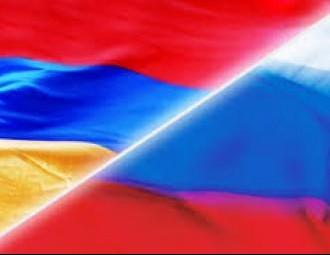Andrei Kazakevich: Russia wants to enlarge Customs Union and prevent European integration

The recent announcement about Armenia’s determination to join the Customs Union corresponds with the attempts Russia implements to prevent “Eastern Partnership” countries from integration with the EU.
It was stated in the talk with the EuroBelarus Information Service by Andrei Kazakevich, the director of the Institute for Policy Studies Palіtychnaya Sphera (Political Sphere).
- The government of Armenia stated about its determination to enter the Customs Union, though it was planned to discuss the agreement about free trade with the European Union at the Eastern Partnership Summit in Vilnius. How can we explain such a decision?
- First, I would say that it is too early to talk about the expansion of the Customs Union. And secondly, we should understand that Armenia is a weighty Russian ally in Caucasian region mostly due to the complicated situation in the sphere of foreign policy. And Russia serves as an important fighting partner for Armenia here.
I believe that such efforts can be viewed as an attempt of Russia to disrupt the plans EaP countries have in relation to European integration. Russia made big efforts to disrupt the signing of EU-Ukraine agreement; that is why sudden step Armenia took fits in with the chosen course.
We also shouldn’t forget that Russia is trying to extend the Customs Union all the time because of the insufficient number of countries and the size of market formed after accession of Belarus and Kazakhstan.
One more aspect being voiced recently is that European and Eurasian integration are not mutually exclusive. For now it is hard to understand how it will work technically. I think that Armenia will try to play this game of participation in both European and post-Soviet integration projects, as for now Armenia didn’t refuse from participation in European integration categorically.
- Should we wait for some actions on the EU’s side in response to the attempts Russia makes to prevent “Eastern Partnership” countries from integration with the EU? Are there any changes to be introduced in European politics in this respect?
- It seems to me that Europe won’t take any actions, all the more that the format of the “Eastern Partnership” doesn’t impose any obligations for its participants. That is why the EU can’t have stringent reaction; it mostly counts on the attractiveness of the European project in comparison with that of Russia. It has greater economic appeal; it is more transparent and clear, has established rules and political layout, whereas the Eurasian project is something completely unclear.
- Let us imagine that Armenia finally enters the Customs Union. Does it give Belarus certain opportunities?
Of course, as the accession of a new country always results on the changes of the political layout. All the more so as Belarus has rather close political relations with Armenia, which Belarus will use in its games of politics. However, we shouldn’t expect some economic effect from the likely country-member. The main result of Armenia’s possible entry into the Customs Union is the inclusion of Caucasian region to the post-Soviet integration, which will slightly change it scale and ambitions.
As for Russia, it is important to somehow extend this union, even if Armenia’s membership doesn’t resolve any global and strategic problems. Ukraine is another story, as its entry would completely change the format and weight of the Customs Union.
-
03.01
-
07.10
-
22.09
-
17.08
-
12.08
-
30.09








































